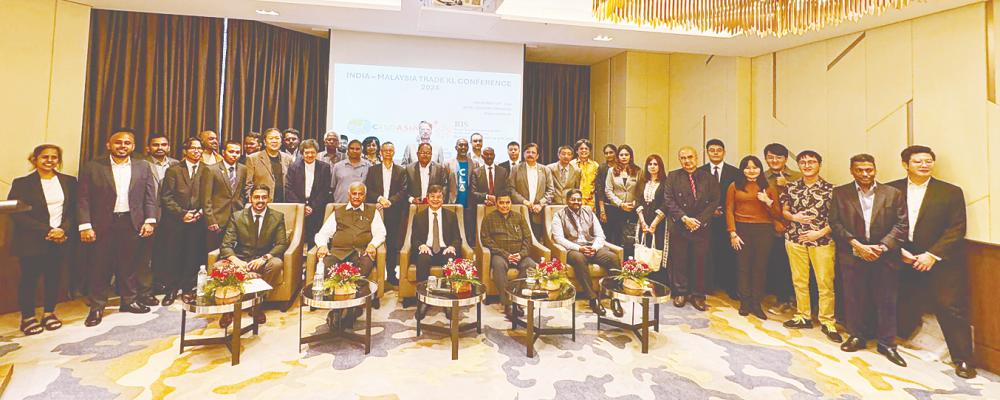KUALA LUMPUR: Malaysia and India have continued to solidify a strong economic relationship, with India being Malaysia’s 10th largest trade partner and while Malaysia is India’s 13th largest.
Over the years, bilateral trade has diversified beyond primary commodities such as palm oil and mineral oil, with significant growth in electrical equipment, machinery, copper products and organic chemicals.
This diversification reflects deeper integration into each other’s value chains, indicating a positive shift towards intraindustry trade.
Research and Information Systems for Developing Countries India Professor Pankaj Vashisht said bilateral foreign direct investment has also seen progress, with a combined total of about US$6 billion (RM26.7 billion).
He said Malaysian firms have invested US$3.3 billion in India, particularly in infrastructure, with commitments of an additional US$7 billion, while Indian firms have invested about US$2.7 billion in Malaysia.
“Despite these advancements, challenges remain. Trade is still concentrated in a limited number of products, with the top 12 items accounting for over half of exports on both sides.
“Moreover, trade potential remains underutilised, with actual trade valued at US$20 billion compared to an estimated potential of US$34 billion. Issues such as tariff and non-tariff barriers, low free trade agreement utilisation (at only 25-30%), and high compliance costs have limited progress.
“Addressing these challenges – especially through digital trade facilitation and interoperability of single-window systems – could significantly improve trade efficiency,” he said at the India-Malaysia Trade KL Conference 2024 on Saturday.
Pankaj said new opportunities are emerging for bilateral cooperation, namely in areas such as digitalisation and e-commerce. Both countries are advancing digital infrastructure and offering platforms for SMEs and MSMEs to integrate into global value chains.
There is also financial technology (fintech), in which India’s thriving fintech sector can collaborate with Malaysia’s growing fintech landscape to create innovative solutions.
“Under renewable energy, joint efforts in solar, bioenergy, and green energy projects can accelerate sustainability goals and combat climate change. As for semiconductors and critical minerals, leveraging Malaysia’s established semiconductor sector and India’s growing initiatives presents mutual opportunities.
“Both nations can collaborate to ensure mineral security and advance semiconductor manufacturing. By addressing trade barriers, enhancing digital cooperation, and tapping into emerging sectors, Malaysia and India have the potential to unlock significant economic opportunities and strengthen their long-standing partnership,” Pankaj said.
Asean-India Economic Council chairman Datuk Ramesh Kodammal said India is poised to strengthen defence cooperation with Asean countries, including Malaysia.
He said that during his visit last year, India’s former defence minister Rajnath Singh discussed advancing collaboration in thesector with Malaysia’s defence minister.
“India has already made strides by supplying defence equipment to the Philippines, marking its growing influence and commitment to regional security. Malaysia, recognising this opportunity, has shown a clear interest in furthering its defence ties with India.
“Strengthening such cooperation can enhance Malaysia’s defence capabilities while contributing to regional stability and security within Asean. This partnership signals a strategic alignment, offering mutual benefits as both nations navigate evolving regional and global defence landscapes,” Ramesh said.









